Today, ethical fashion has become important in order to fix the bad effects of regular fashion practices. But what does ethical fashion mean, and why should it matter to people and the planet? The following article looks at why it's so important to make conscious choices when buying clothes and takes a closer look at the huge impact fashion has on the environment, workers, and animals. We will explain important ideas such as sustainable materials, fair trade practices, and cruelty-free options, and show how your fashion choices can make a big difference.
What is Ethical Fashion?

With increased awareness over social and environmental consequences as an effect of our choices, transparency and sustainability within the fashion industry are in higher demand.
Ethical fashion is a thoughtful way of being attuned to the production of clothes and accessories, considering people, the environment, and ethics in mind from the initial conception all the way down the line. This practice seeks not to inflict harm on people, animals, or the earth through fashion. In simple terms, ethical fashion seeks to craft a more responsible and balanced world of fashion with remedies to some critical issues that surround labor rights, environmental sustainability, and animal protection.
The Power of Choice
Conscious consumerism, which is really a call to be more aware about what is being purchased, is the backbone of ethical fashion. It means knowing where products come from and how they make their way, from raw material to finished product. In this light, by buying into brands that are ethical and consistent with our values, we can actually use the ability to purchase as a force for good.
The Benefits of Ethical Fashion

Environmental Sustainability
The amazing environmental impact the fashion industry has is astounding. From water pollution through to greenhouse gas emission and waste accumulation, old ways of performing fashion stress Earth's resources seriously. A case in point: textiles are expected to reach as high as 134 million tonnes a year before the end of the decade. It accounts for 20% of the world's wastewater, and, incredibly, it takes approximately 2,700 liters of water to make one t-shirt. Furthermore, at the end of this decade, that industry is expected to double its global emissions, outperforming even international aviation and shipping combined.
Ethical fashion addresses these concerns by embracing sustainability and eco-friendly practices: carefully choosing materials, committing to waste reduction, and adopting a model of circular economy. Recycled fabrics, organic materials, and biodegradable textiles are newlanes in innovation, which are at the forefront of transforming this industry into a responsible entity.
Workers' Rights - Fair Trade Practices
In addition to environmental ones, ethical fashion goes in the same hand as better quality of life for the garment workers. Labour exploitation and hazardous working conditions have made the garment industry an issue of concern. Garment laborers in countries like China, Bangladesh, and Vietnam work upwards of 20 hours per day on very meager pay.
The tragic collapse of Rana Plaza in Bangladesh in 2013, which took over 1,100 lives, showed the dire need to make the fashion industry a safer and more ethical one. Ethical fashion makes sure workers get fair pay, have safe work environments, and are treated well. They will never use any kind of unfair methods, like forced labor, child labor, or unsafe conditions. These brands focus on being open by sharing details about where their products come from and how they are made, often working with skilled workers and craftspeople from less privileged communities.
Cruelty-Free Alternatives
Ethical fashion cares about the well-being of animals. Regular fashion often uses materials that come from extremely cruel practices, such as fur, leather, and exotic skins. Ethical fashion makes use of options that do not harm animals, including fake leather and fabrics made from plants, along with new materials grown in labs.Such alternatives may avoid animal suffering but provide an added ecological benefit to the industry.
PTCL to Garment Ethics
At PTCL, we work in changing the face of the denim industry with ethics. We believe in less overconsumption and believe in powerfully engaging a community into this process. Our approach goes towards limited releases of products, which are consciously produced, with every garment reflecting our commitment to sustainability with responsible consumption.
Focusing not on quantity but quality, we want to change the denim industry to create less waste and make the fashion cycle healthier. Our community-driven model at PTCL empowers consumers to drive such positive change by embracing a brand that truly stands for environmental and social responsibility. Every purchase one makes from PTCL goes toward building a more sustainable future, with changes in the very fabric of the fashion industry.
In Conclusion: Why Is Ethical Fashion Important?
The ethical fashion movement is borderless and intercultural, enabling consumers to become active participants in positive change on a global scale. It allows people to make choices that consider social and environmental issues, contributing to industrial changes toward sustainable, fair labor practices, and compassionate treatment of workers and animals.
We create an industry that reflects our values and works toward a better, fairer world by choosing ethically produced products, supporting responsible brands like PTCL, and voicing our support for sustainable business practices.






Comments (0)
There are no comments for this article. Be the first one to leave a message!